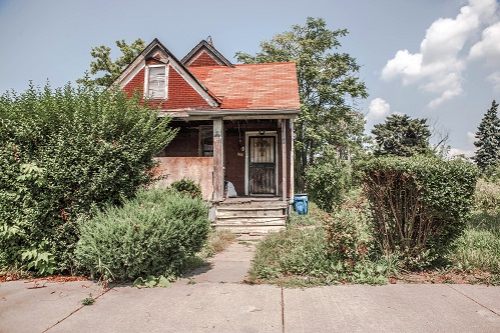How do I get renters insurance?
Knowing how much coverage you need and comparison shopping are the keys that will help you find the right renters insurance policy at the best price.
1. Inventory your personal belongings
Start by doing an inventory of your possessions and estimating their value. Remember to include things like dishes, linens and clothing, not just big-ticket items like electronics. Estimate how much it would cost to purchase all of those items new. This is the amount of personal property coverage you will need.
It's a good idea to take photos or a video of your possessions in case of a future claim. Keep that and your inventory in cloud-based storage so you can access it from anywhere.
2. Choose a deductible and liability limit
Choose a deductible: Your deductible is the amount you'll pay if you file a claim. Your options will likely start at $500 and go up from there; the larger the deductible, the lower your premiums. Ensure you can afford to pay it, however, if you have to.
Choose liability limits: A renters policy comes with $100,000 as standard for personal liability. You can increase that amount if you have significant assets or risk of a lawsuit.
3. Request renters insurance quotes from multiple companies
Compare rates from multiple companies to find the best deal. You may want to start by getting a renters insurance quote from the company that handles your auto insurance. Many insurance companies offer a bundling discount for auto and renters insurance.
Even if your auto insurance company offers you a good deal, you should still shop around and compare renters insurance quotes from a few other companies. It's also a good time to compare car insurance quotes; you might save on both policies.
4. Select a renters insurance policy and pay the premium
Once you've decided on a policy, you will need to make a premium payment to start your coverage. You can pay the full annual premium upfront or choose to make monthly payments. If you're bundling, you can likely pay both premiums on the same monthly bill.
People ask
How long does it take to get renters insurance?
Most companies will issue a renters insurance policy instantly. Once you have completed all of the applications steps and paid your premium your renters insurance policy will be active right away.
How much does renters insurance cost?
The average cost of renters insurance is $288 a year, or about $24 a month. That’s the national average renters insurance cost for a policy with coverage levels of $40,000 for personal property, with a $1,000 deductible and $300,000 of liability protection.
The cost of a renters policy depends on how much coverage you need, where you live, and personal factors like your claim history. However, renters insurance rates are generally very low and affordable since there’s no dwelling to protect.
Increasing the personal property portion of the coverage will have a greater effect on the cost than increasing liability, which generally only adds a few dollars a month to the premium.
How to get cheap renters insurance
You can get cheaper renters insurance with a few basic steps. They include:
- Shopping around to compare quotes from multiple companies and find the best deal.
- Bundling your renters and auto insurance with the same company for a discount
- Asking about other discounts, including for safety and security devices, your occupation, paperless billing and setting up autopay.
How much renters insurance should I get?
When you’re buying renters insurance, we recommend the following coverage:
- Enough personal property coverage to replace all of the contents of your home. Don't forget things like linens, dishes and cookware, clothing and home décor.
- Liability coverage of $300,000. A standard policy comes with $100,000, but it costs very little to increase it and triples your coverage.
- Replacement cost coverage for personal property. Standard renters insurance covers personal property at actual cash value; upgrade to replacement cost so you'll be covered at the value of each item new today.
- Scheduled personal property endorsements for any high-value items that are subject to special limits, like jewelry.
A policy with these coverages will ensure that you’re adequately protected.
Where to buy renters insurance
You can buy renters insurance from most major home insurance companies. Some new companies operating mainly online also offer renters insurance. These companies and more can offer you a policy:
- State Farm
- Allstate
- Farmers
- Liberty Mutual
- Lemonade
- Travelers
- Amica
- Nationwide
- American Family
How do I get proof of renters insurance?
After you purchase a policy, your insurance company will send proof of insurance to you by mail and possibly digitally as well. You can also log into your insurer's website or app to find your policy.
If you need to provide proof of renters insurance for your landlord, print or make a copy of your renters insurance declaration page, which is the front page of your policy and summarizes your coverage.
If you work with an agent, as them to provide you with proof of renters coverage.
FAQ: Renters insurance
Can I get an auto and renters insurance bundle?
Yes, most major insurance companies offer a renters and auto insurance bundle at a discounted rate.
Should I share a renters policy with my roommate?
Preferably, no. Most experts don't recommend sharing renters insurance with a roommate. All of your roommate's claims will be reflected on your insurance record, and if your roommate's possessions have a higher value than yours, a 50/50 split on the bill may not be equitable.
Can college students get renters insurance?
Yes, college students can get renters insurance, but they may not need it. Almost all homeowners policies will extend coverage to college students living in dorms or campus housing.
"Most homeowners policies include coverage for a college student's personal belongings while they are living on campus. Typically, the student's property is covered up to 10% of the amount on the parent's policy for personal property," Orbann says.
However, renters insurance will be needed if the student has permanently moved out.
Can you get renters insurance after you move in?
Yes. You can get renters insurance at any time.




